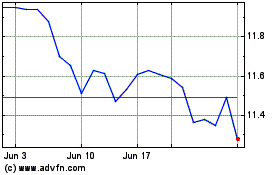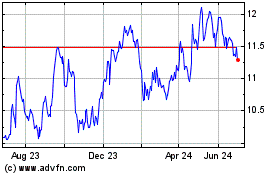NEW DELHI (Dow Jones)--India's Supreme Court Thursday ordered
cancellation of mobile-telecom-service licenses issued without
auction after January 2008, raising uncertainty over billions of
dollars that companies like Japan's NTT DoCoMo Inc. (9437.TO) and
Telenor ASA (TEL.OS) of Norway have invested in the South Asian
nation.
The ruling, which will be operative after four months, comes on
complaints of corruption in the allotment of licenses for
second-generation services and raises concerns about the foreign
investment climate in Asia's third-largest economy because of
uncertain policies. It also raises worries about protracted legal
tussles between the government and the affected operators who may
demand a refund of the billions they spent as license fees and in
network expansion.
NTT DoCoMo, Telenor as well as Russia's Sistema JFC (AFKS.RS)
and Emirates Telecommunications Corp. (ETISALAT.AD) of the United
Arab Emirates and Bahrain Telecommunications Co. (BATELCO.BH) had
bought major stakes in companies that got licenses in 2008 as India
presented a major growth market to global telecom operators. The
Tatas and the Aditya Birla group, two big Indian conglomerates, are
also affected by the court order.
The Supreme Court scrapped 122 licenses issued to nine companies
across India's 22 telecom services areas--each service area
requires a separate license--citing "a fundamental flaw" in the
first-come, first-served policy followed for granting them.
Methods like first-come, first-served are "likely to be misused
by unscrupulous people who are only interested in garnering maximum
financial benefit," said a two-judge bench comprising Justices G.S.
Singhvi and Asok Kumar Ganguly.
The court said the telecom regulator has to frame new
recommendations for license and bandwidth allocation, and that the
government needs to decide on the proposals in a month's time,
after which new licenses need to be auctioned.
According to data from the regulator, operations under these 122
licenses covered just about 5% of India's nearly 894 million mobile
users as of December end. The users won't be affected immediately
as the order won't be operative for four months.
The 122 licenses include 15 of Etisalat DB Telecom Pvt. Ltd.,
majority owned by Emirates Telecommunications; 22 of Telenor's unit
Unitech Wireless Ltd.; 21 of Sistema's unit Sistema Shyam
Teleservices Ltd. and three given to Tata Teleservices Ltd., in
which NTT DoCoMo holds 26%.
The court also ordered scrapping of licenses in 13 services
areas for Aditya Birla Group's Idea Cellular Ltd. (532822.BY), 21
each for Loop Telecom Pvt. Ltd. and Videocon Telecommunications
Pvt. Ltd. and all the six licenses given to S Tel Pvt. Ltd.,
majority held by Bahrain Telecommunications. The 13 licenses of
Idea include some the company got through its merger with Spice
Communications Ltd. in late 2008.
The court fined Tata Teleservices, Etisalat DB and Unitech
Wireless INR50 million (about $1 million) each for having gained by
selling their stakes after getting the licenses. It also fined S
Tel, Loop, Videocon Telecommunications and Sistema Shyam INR5
million each for benefiting from a "wholly arbitrary and
unconstitutional exercise undertaken" by the telecom department for
granting them the bandwidth.
Under law, the companies can file for a review of the order.
In separate statements, Idea, Telenor and Sistema Shyam said
they will consider all necessary actions to protect their
investments, while NTT DoCoMo said it couldn't comment on a
business decision that Tata Teleservices will take.
Emirates Telecommunications said it wants to study the impact of
the order, while S Tel said it feels "like a victim caught in a
riot." Loop declined to comment and others couldn't be reached.
The development is likely to further deepen the uncertainties in
an industry that has until recently been a showpiece of India's
growth story, but is now facing corruption allegations, policy
hurdles, slowing growth and narrowing margins.
The development will hurt foreign direct investment "because
foreign investors seek certainty in these types of (policy)
matters," said Akil Hirani, managing partner of Majmudar & Co.,
which advises international companies on investments in India and
cross-border mergers. "However, on the flip side, the message that
the Supreme Court has sent out is that corruption will be dealt
with strictly."
Communications Minister Kapil Sibal, however, said the order has
brought clarity on some issues and should actually bring in more
foreign investors to a sector that is "crying for investments."
The order comes even as a special court is trying a former
minister and several others including former government officials
and corporate executives over charges of corruption in the
allotment of the licenses that a federal probe agency says led to a
potential $7 billion revenue loss to the government.
The telecom case has been a major embarrassment for Prime
Minister Manmohan Singh's administration, which is facing flak over
large-scale corruption and, of late, indecision on policy
issues.
But the court ruling could bring a financial windfall for the
government as it could auction the bandwidth currently with the
cancelled licenses, and use that to narrow its budget deficit.
India had raised $22 billion through an auction of bandwidth for
third-generation and broadband internet services in 2010.
While the ruling is a body blow for the new telecom players, it
could benefit existing players such as Bharti Airtel Ltd., Reliance
Communications Ltd. and Vodafone India Ltd. A lower number of
operators could ease the competitive intensity in India's telecom
industry, and see some call tariffs being raised.
"Some of these smaller operators [affected by the court ruling]
will be faced with the choice to either close operations or re-bid
for licenses," ratings agency Fitch said in a report. "It is
unclear whether some players will have the stomach or resources to
invest more to defend businesses which are still in start-up
mode."
-By R Jai Krishna and Romit Guha, Dow Jones Newswires;
+91-9967586928; romit.guha@dowjones.com
Telenor ASA (QX) (USOTC:TELNY)
Historical Stock Chart
From Oct 2024 to Nov 2024

Telenor ASA (QX) (USOTC:TELNY)
Historical Stock Chart
From Nov 2023 to Nov 2024
